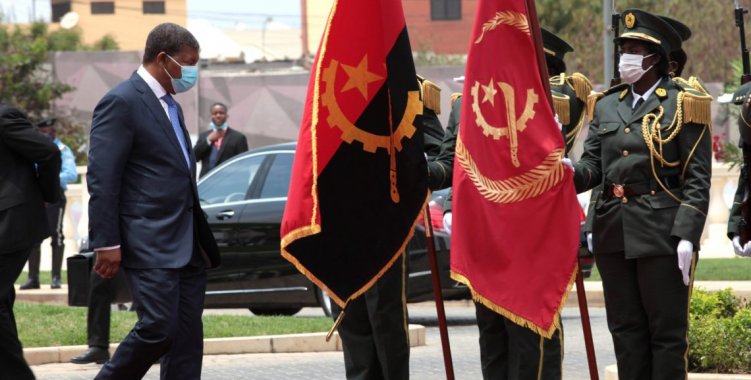For Eugénio Costa Almeida, associate researcher at the ISCTE-IUL Center for International Studies (CEI-ISCTE), the will announced by João Lourenço during the election campaign for the 2017 general elections, when he promised to create 500 thousand jobs, is " a promise that at the beginning was known to be unworkable ".
"Who is going to create the jobs?" - questioned the Luso-Angolan researcher, stressing that Angola does not have "an employer class sufficiently sustainable to create companies".
The idea is shared by Fernando Jorge Cardoso, coordinator of the Marquês de Valle Flôr Institute (IMVF) and also a researcher at CEI-ISCTE, who pointed out that the State currently does not have the "capacity to invest", pointing out that the privatization plan itself "falls short of what the executive's wishes were".
According to the Portuguese researcher, private investors "only invest in activities that have long-term profits if there is confidence, and at the moment the Angolan economy does not inspire confidence".
Fernando Jorge Cardoso criticized the model of the privatization program by the Government, considering that these are service companies, arguing that the privatization of "industrial production companies, companies that were producing corn flour, dairy products, fabrics, clothing, shoes , parts for industries "would be more ambitious for private investors.
For the Portuguese academic, through the "complete reorganization of the way the State finances itself" it will be possible to create and develop social structures in Angola.
Fernando Jorge Cardoso points out that in addition to the implementation of value added tax (VAT) in October 2019, "a tax reform" is necessary so that "people get used to having to pay taxes to have rights".
Fernando Jorge Cardoso defended that the application of tax reforms and an increase in national consumption, national production and payments by nationals represents sustainability for Angola.
"A country can only sustain itself, in the world in which we live, based on taxes paid by its nationals," he said, adding: "Angolans will have to accept, assume and lead a process of readjustment that will be quite painful".
Even so, Fernando Jorge Cardoso believes that João Lourenço "will probably be the best choice that Angolans will be able to make", but that the head of state "has to change the way he is", referring to "completely unrealistic expectations" "when he started his governance.
During the third quarter of this year, and at a time when the country is hit by the covid-19 pandemic, the unemployment rate in Angola increased to 34 percent, 1.3 percentage points from the previous three months (32.7 percent) and 3.9 percentage points compared to the same period last year (30.1 percent), as announced last October 31 by the National Statistics Institute.
"When we reached 2020, we looked at Angola and found that, compared to the end of the colonial period, what we found is an Angolan economy in much worse conditions from the point of view of domestic production capacity," said Fernando Jorge Cardoso.
For the researcher, "the Angolan offshore is no longer profitable, and the period in which Angolan leaders (...) could and should have used the opportunity to renew concessions, the attempt to discover new wells has passed".
In this sense, Fernando Jorge Cardoso pointed out that after reaching the maturity of the oil exploration wells and without the renewal of these concessions, production will fall "in an abrupt manner, and that is what is about to happen".
For Portuguese, the country did not know how to apply "an absolutely pornographic amount of money that went through the sale of oil export commissions" in a sovereign wealth fund and in the development and diversification of the economy, something "that is talked about a lot and then not done" .
To achieve this economic diversification, Fernando Jorge Cardoso considered that there is a need for public investment or the entry of private individuals, as well as a "major transformation" to strengthen the economy.
"The great transformation requires investments in the production of goods for domestic consumption, it depends on what is defended at this time by the majority of African leaders", he said.
Eugénio Costa Almeida also defended that the Government should create financing conditions for Angolan entrepreneurs and that this should include commercial banks or the "creation of a specific bank, from scratch".
"They may not even have money, for sure there will be entrepreneurs with excellent, feasible ideas, some even immediate, but who lack the capital", said the Luso-Angolan academic.







